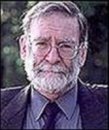Harold Shipman
|
|
Harold Frederick ("Fred") Shipman (January 14, 1946 – January 13, 2004) was a British general practitioner who was convicted of murdering 15 medical patients and is believed to have killed hundreds more, making him the most prolific serial killer in British history.
Shipman was detected after he attempted to forge a will for one of his victims, whose exhumed body contained traces of diamorphine (medical-grade heroin, legal for pain control in the UK). He had previously been investigated by police but no evidence was found against him. The handling of the case at that time has been widely criticised.
Shipman was convicted in January 2000 of killing 15 patients with lethal injections of diamorphine. The trial judge sentenced him to life imprisonment and recommended that he should never be released. Shipman was one of the last prisoners to receive a government-imposed tariff when in June 2002 the Home Secretary agreed with the trial judge's guidance and informed Shipman that he would never leave prison.
A report into Shipman's activities submitted in July 2002 concluded that he had killed at least 215 of his patients between 1975 and 1998, during which time he had practised in Todmorden, West Yorkshire (1974-1975) and Hyde, Greater Manchester (1977-1998). Dame Janet Smith, the judge who submitted the report, admitted that many more suspicious deaths could not be definitively ascribed to him. Most of his victims were elderly women in good health. In her sixth and final report, issued on 27 January 2005, Dame Janet Smith reported that she believed that Shipman had killed three patients, and she had serious suspicions about four further deaths including that of a four year old girl, during the early stage of his medical career at Pontefract General Hospital, West Yorkshire. Dame Janet concluded that the probable number of Shipman's victims between 1971 and 1998 was 250. In total, 459 people died while under his care. Many cases are unclear because Shipman was often the only person to certify a death.
Although apparently convinced of his own superior abilities, Shipman had a troubled professional history which included disciplinary action for the abuse of prescription drugs.
He was found hanged in his cell at Wakefield Prison, West Yorkshire, at 6:20 a.m. on January 13, 2004, on the eve of his 58th birthday, and was pronounced dead at 8:10 a.m. A Prison Service statement indicated that Shipman had hanged himself from the bars of his cell with bed sheets. Some British tabloids celebrated his suicide and encouraged other serial killers to follow his example.
Shipman consistently denied his guilt and never made any statements about his actions. His mother died of cancer while Shipman was still young and some commentators have postulated that his murder of older women was somehow related to this painful experience. An arrogant desire to control life and death has also been proposed as a motive.
His motive for suicide is also not established, although he had reportedly told his probation officer he was considering suicide so his widow could receive a National Health Service pension and lump sum, even though he had been stripped of his own pension [1] (http://news.bbc.co.uk/1/hi/england/3611019.stm).
While he is most commonly known as Harold Shipman, he himself preferred his second name and usually called himself Fred Shipman.
Often referred to in broadcast media and the press as "Britain's worst serial killer", it would be more correct to refer to him as "Britain's most prolific serial killer that we know of".
Shipman's widow, Primrose Shipman, was called to give evidence about two of the deaths during the inquiry. Mrs. Shipman maintained her husband's innocence both before and after prosecution.
External links
- Shipman Inquiry (http://www.the-shipman-inquiry.org.uk/)
- BBC — The Shipman Murders (http://news.bbc.co.uk/1/hi/in_depth/uk/2000/the_shipman_murders/default.stm)de:Harold Shipman
et:Harold Shipman eo:Harold SHIPMAN nl:Harold Shipman sv:Harold Shipman

